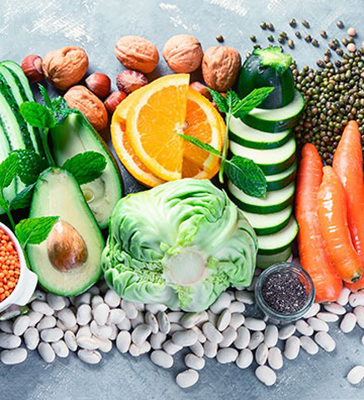

Exploring the World of plant-based meat, eggs, and dairy-free milk alternatives
The demand for plant-based and alternative protein sources has surged, leading to a remarkable array of options that cater to diverse dietary preferences and lifestyles.
Let’s explore the exciting world of meat, eggs, and milk alternatives, showcasing the delectable and sustainable options available today.
Plant-Based Meat Alternatives
Plant-based meat alternatives have undergone a tremendous transformation in recent years. Innovations in food science and technology have given rise to delicious, meat-like products that appeal to both vegetarians and meat-eaters alike. Alternative meat products have successfully recreated the taste, texture, and even “bleeding” effect of traditional meat using plant-derived ingredients.
These alternatives are often made from protein-rich sources like soy, pea protein, seitan, and jackfruit, and they contain a fraction of the saturated fats found in animal-based meats. Not only are they environmentally friendly due to lower greenhouse gas emissions and reduced land and water use, but they also offer health benefits by promoting a plant-focused diet.
Egg Substitutes
For those who enjoy baking or need an egg substitute in their savory dishes, various egg alternatives have come to the rescue. Traditional eggs can be replaced with easily accessible plant-based options, such as flaxseed meal, applesauce, mashed bananas, silken tofu, and commercial egg replacers. These substitutes work remarkably well in most recipes and still provide the necessary binding or leavening properties. Plant-based egg alternatives are not only cholesterol-free but also significantly reduce the environmental impact.
Dairy-Free Milk Alternatives
Dairy-free milk alternatives have gained immense popularity in recent years, providing consumers with a wide range of choices to suit their taste preferences and nutritional needs. Common milk alternatives include almond milk, soy milk, oat milk, coconut milk, rice milk, and hemp milk. Each variety offers its unique flavor profile, consistency, and nutrient composition.
These alternatives are often fortified with essential vitamins and minerals like calcium and vitamin D, making them suitable replacements for traditional cow’s milk. They are also suitable for people with lactose intolerance or those who follow a vegan lifestyle, reducing their ecological footprint significantly.
Nutritional Benefits and Sustainability
Meat, eggs, and milk alternatives are not only sustainable but also offer numerous health benefits. Plant-based protein sources are typically lower in saturated fats, cholesterol, and calories, while being rich in fiber, vitamins, and minerals. Incorporating these alternatives into one’s diet can help reduce the risk of heart disease, diabetes, and other chronic health conditions.
From an environmental standpoint, embracing meat, eggs, and milk alternatives can significantly reduce greenhouse gas emissions, deforestation, water consumption, and animal suffering associated with conventional animal agriculture.
The world of meat, eggs, and milk alternatives is a vibrant and rapidly expanding realm of culinary possibilities. With ongoing advancements in food technology and an increasing focus on sustainability and health, these alternatives have become more accessible, delicious, and nutritious than ever before. Whether you are a committed vegan, a flexitarian, or simply someone seeking to make more environmentally conscious choices, these alternatives offer an enticing and wholesome way to enjoy your favorite dishes without compromising on taste or ethics. So why not embark on this sustainable and flavorful journey today? Your taste buds, your health, and the planet will undoubtedly thank you.
LAST NEWS



